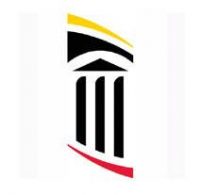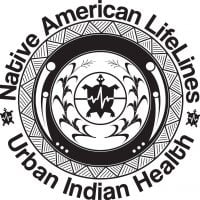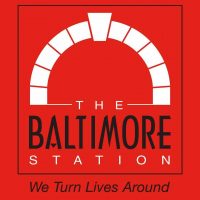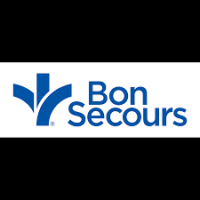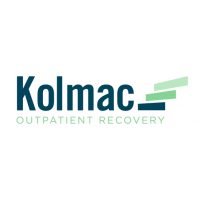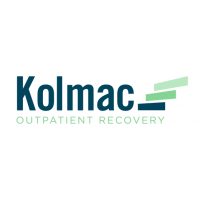University of Maryland - Methadone Treatment Program
Drug Rehab Center in Baltimore, Maryland
The University of Maryland - Methadone Treatment Program in Baltimore, Maryland is a state-of-the-art addiction treatment facility that offers comprehensive services, including aftercare support and a range of therapies, to help individuals overcome substance use disorders.
About This Baltimore, MD Facility
University of Maryland - Methadone Treatment Program, located in Baltimore, Maryland, is a state-of-the-art addiction treatment facility dedicated to helping individuals overcome substance use disorders. With a rich history of providing comprehensive care, this public rehab specializes in treating alcoholism, drug addiction, dual diagnosis, opioid addiction, and substance abuse.
• Comprehensive range of services, including aftercare support, detox, drug rehab, dual-diagnosis, outpatient, and intensive outpatient levels of care
• Gold standard accreditation from the Substance Abuse and Mental Health Services Administration (SAMHSA)
• Accepts most private health insurance plans, ensuring accessibility to those in need
• Experienced and compassionate team of counselors, therapists, and psychiatrists working closely with each patient
UMD - Methadone Treatment Program has earned the prestigious distinction from SAMHSA, showcasing their commitment to providing the highest quality of care. By accepting most private health insurance plans, they strive to make their services accessible to a wide range of individuals seeking help.
The facility offers a diverse array of treatment services tailored to each patient's unique needs, including traditional step-based programs, cognitive-behavioral therapies, trauma-informed care, adventure-based therapies, and art therapy. Their multidisciplinary team collaborates to develop personalized treatment plans that incorporate evidence-based strategies for successful recovery.
In addition to addressing specific addictions such as alcoholism, opioid addiction, and substance abuse, UMD - Methadone Treatment Program also provides comprehensive care for individuals with dual diagnosis. They offer educational and vocational support to promote long-term success and help patients maintain their sobriety well beyond their time at the facility.
Genders
Ages
Modality
Additional
Accreditations
SAMHSA
Conditions and Issues Treated
Rehab centers exist in Baltimore, MD to help individuals bounce back from substance abuse, which is an umbrella term for drug and alcohol addiction. Drug addiction refers to the use of illegal drugs and improper use of prescription drugs. Centers like University of Maryland - Methadone Treatment Program provide individuals a chance to access individual and group therapy that can be monumental for recovery.
Substance abuse includes all problems that stem out from using various psychoactive substances. It is also a diagnostic term used by Diagnostic and Statistical Manual of Mental Disorders (DSM-IV) to define the mental and physical impairment or distress caused by misuse and overuse of certain substances in a period of 12 months.
Opioid addiction involves addiction to legal or illegal opioids. It may happen very quickly with any opioid use. Sometimes within a matter of days. Opioid addiction is a known as a high-risk factor for future heroin addiction.
Opioid withdrawal can be extremely uncomfortable and lead the user to continue to use even if they want to quit. Stopping using an opioid requires careful medical observation. Sometimes the withdrawal can persist for many weeks, which can put the user at a high risk for relapse.
It is recommended to receive inpatient treatment and a medically supervised detox like those offered at University of Maryland - Methadone Treatment Program in Baltimore, MD, MD, to manage the withdrawal process while learning lasting tools to maintain recovery. In some circumstances medications can be used to manage opioid addiction.
People with dual diagnosis have coexisting addiction and a mental disorder. 9.2 million US adults had a co-occurring disorder in 2018, so not just limited to Maryland residents. Best treatment combines medication, psychotherapy (talk therapy), support group, and inpatient rehabilitation. Sometimes, complementary therapies – yoga, massage, and acupuncture – may also be used.
Levels of Care Offered
This center offers a variety of custom treatment tailored to individual recovery. Currently available are Aftercare Support, Detox, Drug Rehab, Dual-Diagnosis, Intensive Outpatient, Outpatient, with additional therapies available as listed below.
Detoxification is a process that allows the patient to stop using opioids without experiencing severe withdrawal symptoms. This can be necessary for those who have been addicted for a long period of time or who are struggling with chronic pain.
During this process, addicts will receive medication and psychological support from doctors and other medical professionals until they can control their cravings.
Intensive outpatient programs mostly conduct meetings on weekdays. Group therapy is the main element in most intensive outpatient programs. Most IOPs last for about 90 days and include drug use monitoring and testing. A Maryland IOP, like what’s offerd at University of Maryland - Methadone Treatment Program, take much more time than a standard outpatient program. Some programs offer other services as well, such as employment assistance and medication management.
Outpatient treatment can be considered the lowest intensity level of addiction treatment in Baltimore, MD. It is ideal for early phase addiction or lower intensity addictions. University of Maryland - Methadone Treatment Program peer group support, 12-step programs, and individual counseling may still be involved.
After treatment, addiction treatment can be frightening for newly sober people. Aftercare support provided by University of Maryland - Methadone Treatment Program is designed to give resources and help on a continued basis. It can involve finding housing in and around Maryland, setting up 12-step meeting groups, continued medical monitoring, and counseling.
University of Maryland - Methadone Treatment Program‘s Therapies & Programs
Individual therapy aims to identify the core issues that would have led the patient to substance abuse and address the root cause effectively. Patients find the therapist as a person who they can trust. It helps them to open up and discuss personal and sensitive issues, which they may not be comfortable discussing in a group.
Couples therapy is an approach wherein the patients and their partners are engaged together as a part of the treatment process. When a person becomes a victim of substance abuse, it affects the patient and the people around him, particularly his partner. Their relationship can become strained due to lack of communication, financial issues, loss of trust, lack of intimacy, and physical abuse in more severe cases.
Couples therapy addresses these issues and tries to rebuild the trust between the partners. The partner’s involvement in the process will result in greater chances of treatment success and sustained recovery.
Family therapy is a set of therapeutic approaches that assumes that the entire family is a system. It utilizes the strengths and resources of the family to help the patient refrain from resorting to substance abuse. It helps to repair relationships and improve communication between family members.
Group therapy happens at University of Maryland - Methadone Treatment Program in a controlled group environment, as opposed to a one-on-one setting. It supports Baltimore, MD patients’ recovery by offering a sense of comfort and letting them know that they are not alone. Through shared conversations, patients also learn to develop faith and understanding and gain insight on their addictions.
Unresolved trauma is often a key reason why many patients resorted to substance abuse. Trauma therapy refers to treatment wherein specialist therapists help the patients to resolve the trauma that led the patients to substance abuse. The trauma could be physical abuse, sexual abuse, war, natural disasters, divorce, accident, loss of a loved one, etc. Thinking of these traumatic events causes emotional disturbances like anxiety, depression and results in addiction. If trauma is the primary cause of substance abuse, then both issues must be addressed. Otherwise, there is a risk of relapse. Trauma therapy also improves the cognitive functions and provides long term benefits.
Cognitive behavioral therapy (CBT) is a way of addressing concerns through talking. It can be used in individual counseling sessions. Talking through issues with professionals at University of Maryland - Methadone Treatment Program can identify sources of discomfort or unhealthy thoughts. It is a way of learning about yourself and your individual perceptions. CBT is a healthy way of addressing some behaviors which may be bringing unintended consequences in your life.
Rational Emotive Behavior Therapy (REBT) sees a person suffering from substance addiction to have illogical reasoning, counterproductive actions, and does not see things clearly. Due to this, REBT deals with cognition, images, and behavior extensively to rectify the client’s bad habits. REBT pushes an individual to become more reasonable and choose a life without the repercussions of addictions.
Patients at University of Maryland - Methadone Treatment Program in Baltimore, MD learn how to self-soothe by conducting rational self-counseling. REBT provides their patients with the skill sets necessary in handling problems all by themselves, without seeking professional help. The process calls for practice, reiteration, and bolstering the new way of thinking being introduced to the patient.
Contingency management is a way to help motivate someone to remain substance free. It is a process of rewarding positive choices and good outcomes. As humans we are wired to recreate experiences that lead to positive feelings. Through this method incentives are used for completing positive steps towards a sober life. This may be a reward for attending meetings, remaining sober or for employment goals.
Payment Options Accepted
For specific insurance or payment methods please contact us.
Is your insurance accepted?
Ask an expert, call (888) 674-0062
Additional Details
Specifics, location, and helpful extra information.
Baltimore, Maryland 21223 Phone Number(443) 462-3400 Meta DetailsUpdated April 15, 2024
Staff Verified
Patient Reviews
There are no reviews yet. Be the first one to write one.
Baltimore, Maryland Addiction Information
For the past decade, Maryland's rate of drug use and abuse has significantly increased. The overdose rate is currently higher than the national average. This epidemic is due to the many industries where manual labor is required. As soon as prescription opioids were more readily accessible a large part of manual workers started using–and eventually abusing–the painkillers.
According to recent statistics, there are around 33,000 people who are addicted to drugs in Baltimore. Heroin-related overdose deaths are quite high in Baltimore, at 837 per 100,000 residents in 2016. Baltimore's most commonly abused drugs include heroin, cocaine, and marijuana. The people of Baltimore are friendly and welcoming, and there's always something going on. If you're looking for a place to start fresh, Baltimore is the perfect place.
Treatment in Nearby Cities
- Prince Frederick, MD (51.6 mi.)
- Earleville, MD (39.4 mi.)
- Jessup, MD (12.1 mi.)
- Columbia, MD (13.4 mi.)
- Essex, MD (8.7 mi.)
Centers near University of Maryland - Methadone Treatment Program
The facility name, logo and brand are the property and registered trademarks of University of Maryland - Methadone Treatment Program, and are being used for identification and informational purposes only. Use of these names, logos and brands shall not imply endorsement. RehabNow.org is not affiliated with or sponsored by University of Maryland - Methadone Treatment Program.


